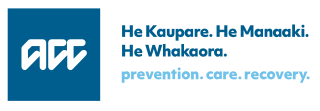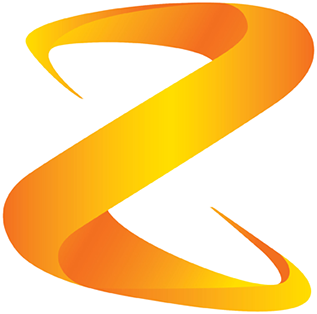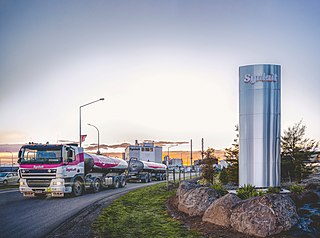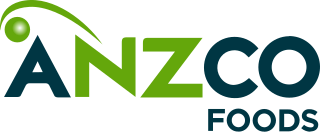Related Research Articles

The economy of New Zealand is a highly developed free-market economy. It is the 52nd-largest national economy in the world when measured by nominal gross domestic product (GDP) and the 62nd-largest in the world when measured by purchasing power parity (PPP). New Zealand has one of the most globalised economies and depends greatly on international trade, mainly with China, Australia, the European Union, the United States, and Japan. New Zealand's 1983 Closer Economic Relations agreement with Australia means that the economy aligns closely with that of Australia. Among OECD nations, New Zealand has a highly efficient and strong social security system; social expenditure stood at roughly 21.5% of GDP.

Fonterra Co-operative Group Limited is a New Zealand multinational publicly traded dairy co-operative owned by New Zealand farmers. The company is responsible for approximately 30% of the world's dairy exports and with revenue exceeding NZ $22 billion, making it New Zealand's largest company. It is the sixth-largest dairy company in the world as of 2022, as well as the largest in the Southern Hemisphere.

The Accident Compensation Corporation (ACC) is the New Zealand Crown entity responsible for administering the country's no-fault accidental injury compensation scheme, commonly referred to as the ACC scheme. The scheme provides financial compensation and support to citizens, residents, and temporary visitors who have suffered personal injuries.
The Overseas Investment Commission was a New Zealand government agency responsible for regulating foreign direct investment into New Zealand.

The Van Diemen's Land Company is a farming corporation in the Australian state of Tasmania. It was founded in 1825 and received a royal charter the same year, and was granted 250,000 acres (1,000 km2) in northwest Van Diemen's Land in 1826. The company was a group of London merchants who planned a wool growing venture to supply the needs of the British textile industry.
The Campaign Against Foreign Control of Aotearoa (CAFCA) is a research and lobbying organisation combatting what it considers the sell-out of New Zealand companies and assets to overseas interests. The organisation evolved from the then-named Campaign Against Foreign Control in New Zealand which began in the early 1970s.

Canada–New Zealand relations are the international relations between Canada and New Zealand. The two countries are former British Dominions and have a common head of state in King Charles III. Both nations are members of the Asia-Pacific Economic Cooperation, Cairns Group, Commonwealth of Nations, Five Eyes, OECD and the United Nations.
In New Zealand "dirty dairying" refers to damage to the ecological health of New Zealand's freshwater environment by the intensification of dairy farming, and also to the high profile campaign begun in 2002 by the Fish and Game Council to highlight and combat this.

In New Zealand, agriculture is the largest sector of the tradable economy. The country exported NZ$46.4 billion worth of agricultural products in the 12 months to June 2019, 79.6% of the country's total exported goods. The agriculture, forestry and fisheries sector directly contributed $12.653 billion of the national GDP in the 12 months to September 2020, and employed 143,000 people, 5.9% of New Zealand's workforce, as of the 2018 census.

Dairy farming in New Zealand began during the early days of colonisation by Europeans. The New Zealand dairy industry is based almost exclusively on cattle, with a population of 4.92 million milking cows in the 2019–20 season. The income from dairy farming is now a major part of the New Zealand economy, becoming an NZ$13.4 billion industry by 2017.

Eugenie Meryl Sage is a New Zealand environmentalist and former politician. She was a Green Party Member of Parliament in the New Zealand House of Representatives from 2011 to 2023.
CraFarms is a group of companies of which Allan, Beth and Frank Crafar were Directors. Crafar Farms was New Zealand's largest family-owned dairy business. The family business owned 22 dry stock and dairy farms with approximately 20,000 cows in various regions of the North Island, and was put into receivership in October 2009. Crafar Farms was involved in multiple prosecutions for pollution offences and incidents of poor animal welfare from 2007 to 2011.

| module = | footnotes = | former_name = | homepage = z

Allan James Hubbard was a businessman who lived in Timaru in the South Island of New Zealand, and was the founder of South Canterbury Finance, New Zealand's largest locally owned finance company. In 2006, the New Zealand Listener described Hubbard as the most powerful businessman in the South Island.

Jan Cameron is a New Zealand-Australian businesswoman and formerly Australia's fourth-richest woman. She made her fortune as the founder of the Kathmandu clothing and outdoor equipment company. She currently lives in Bicheno, Tasmania. She runs various companies and business interests, which together span Britain, New Zealand and Australia. She is a philanthropist and supporter of animal welfare.

Synlait Milk Ltd. is a New Zealand dairy processor selling dairy and plant-based nutritional products, ingredients and powders to multinational customers worldwide. It is headquartered in Dunsandel, Canterbury, with additional manufacturing sites in Auckland and Pokeno, a Research and Development Centre in Palmerston North and offices in Beijing and in Shanghai. The company manufactures milk powders and foodservice products such as infant formula, adult and early life nutrition products, ingredients such as lactoferrin and foodservice products such as UHT cream.
South Canterbury Finance was New Zealand's largest locally owned finance company when it collapsed in August 2010, triggering a $1.6 billion bail-out of investors deposits by the New Zealand Government; almost $1 billion was recovered by receivers.
Beijing Capital Group Co., Ltd., also known as BCG or the Capital Group, is a state-owned real estate enterprise directly under the supervision of the State-owned Assets Supervision and Administration Commission of the Beijing Municipality. The Beijing Capital Group Co. was incorporated in 1994 and is primarily a real estate firm. Headquartered in Beijing, BCG has a business network covering China as well as overseas markets, five listed subsidiaries, and total assets of over RMB 180 billion.

The Overseas Investment Amendment Act 2018 is a New Zealand bill that amends the Overseas Investment Act 2005 to ban most non-resident foreigners from buying existing houses, by classifying them as sensitive land and introducing a residency test. Australian citizens are exempt from this rule as they are considered New Zealand residents per the Trans-Tasman Travel Arrangement. Singaporean citizens are also exempt due to free trade rules. The Overseas Investment Amendment Act was supported by the Labour–led coalition government but was opposed by the opposition centre-right National and libertarian ACT parties. It passed its third reading on 15 August 2018 and received royal assent on 22 August.

ANZCO Foods or simply ANZCO is a New Zealand meat producer fully owned by the Japanese company Itoham Foods, which in turn is part of Itoham Yonekyu Holdings. In 2016, ANZCO Foods was New Zealand's fifth-largest exporter, with a turnover of NZ$1.5b, and 3,000 employees.
References
- ↑ Overseas Investment Commission, Ministry of Justice
- ↑ Who Owns NZ? Foreign Control Key Facts Updated, Scoop 7 January 2014
- ↑ Gay, Edward (1 November 2007). "US buyer snaps up Coromandel jewel". The New Zealand Herald . Retrieved 1 November 2011.
- ↑ Bernard Hickey (5 October 2009). "Crafar Farms put into receivership owing NZ$200m". The New Zealand Herald.
- ↑ NZ land on the block: Are the politicians listening? The New Zealand Herald, 27 August 2014
- ↑ "OIO faces 'independent review' following Onetai farm sale".
- ↑ "OIO staffing boost criticised as too late". 5 May 2016.